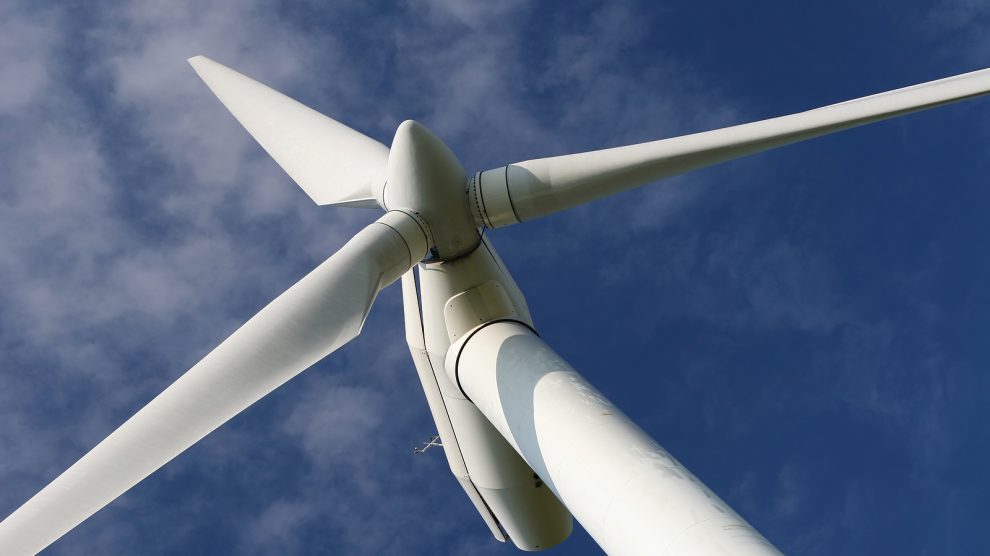New projects in Romania demonstrate DTEK’s ambition to build a fully-integrated EU-Ukraine energy system.
Ukraine’s DTEK Group this week took a significant step on its path to becoming an important provider of clean energy to Europe by achieving ‘first power’ at its debut projects outside Ukraine.
Two projects in Romania—one wind and one solar—are the first in a wider European Union portfolio that will span Italy, Poland, Romania and Croatia and are being developed by DTEK’s wholly-owned subsidiary DTEK Renewables International (DRI), based in the Netherlands.
- What CEE energy companies should look for in a turbulent 2024
- Zelensky’s Davos pitch calls for immediate support, long-term investment
- Energy in the occupied regions of Ukraine: The Azov Ring, Zaporozhzhia NPP, subsidy problems
DTEK Group is already the largest producer of renewable energy in Ukraine, with 1.1 GW of installed capacity. At COP28 in December, it signed a memorandum of understanding with Danish wind energy giant Vestas to expand its Tyligulska windfarm near Kherson—a 450 million euros investment that will create Eastern Europe’s largest windfarm.
‘Romania is open for business’
The two projects in Romania are the first in DRI’s plans to reach five GW of installed capacity within the EU by 2030. Together, the total investment reaches 150 million euros.
This first, Ruginoasa is a 60 MW windfarm with 10 Vestas V162-6.0 MW turbines in the county of Iași, close to Romania’s border with Moldova. Building work began in March 2023, working with contractors Eximprod Engineering, Tractebel Engineering, and Electromontaj. The total investment is 107 million euros.
The second project, at Glodeni in the centre of Romania, is a 53 MWp solar park. Like Ruginoasa, construction began in March 2023, with power accepted by transmission system operator Transelectrica on January 5. DRI partnered with specialist contractors and manufacturers including Ostenweg, Risen, Ideematec, Krone Solar, and Energobit. The total investment is worth 43 million euros.
Together the two projects will produce approximately 225,000 MWh of electricity annually—enough to supply more than 58,500 homes and reduce carbon emissions by 58,000 tonnes a year.
“Ukrainians have made a clear choice that their future lies inside Europe, and DTEK’s expansion into the EU is living proof of that ambition,” says DTEK’s CEO Maxim Timchenko. “I am exceptionally proud of the teams at Glodeni and Ruginoasa in producing green energy for Romanian consumers. This moment marks is a further step forward in the integration of Europe’s and Ukraine’s energy systems as Ukraine moves towards EU accession.”
Romania’s Minister of Energy Sebastian Burduja meanwhile says that Romania has embarked on building an energy system that is green, affordable, and secure, demonstrating the country’s ambition in this sector, honouring its partnership with the European Union’s Green Deal, and reducing our CO2 emissions long-term.
“We are delighted to have such important investments and investors in Romania, and we underline once more our key message for all companies in the global energy sector: come on over, Romania is open for business,” he adds.
An opportunity to export Ukrainian skills
Glodeni and Ruginoasa are two projects in a broader DTEK commitment to help decarbonise both the Ukrainian and European power systems and to fully integrate Ukraine’s energy system with the EU’s.
In March 2022, less than a month after Russia’s full-scale invasion, Ukrainian engineers connected its grid to the European Union’s. The move was an important milestone in Ukraine’s longer-term vision to become a supplier of green power to the Continent given conditions there. The country boasts plentiful wind and sunshine, good land availability, easier permitting and a highly-skilled workforce.
Having developed the Tyligulska windfarm in Ukraine during the war and without foreign workers, DTEK plans to use the DRI projects as an opportunity to export Ukrainian skills to other European markets and generate employment.
Equally, DRI’s expansion will allow Ukraine to draw on European expertise, and potentially to import green Romanian power into Ukraine.
Unlike many news and information platforms, Emerging Europe is free to read, and always will be. There is no paywall here. We are independent, not affiliated with nor representing any political party or business organisation. We want the very best for emerging Europe, nothing more, nothing less. Your support will help us continue to spread the word about this amazing region.
You can contribute here. Thank you.







Add Comment